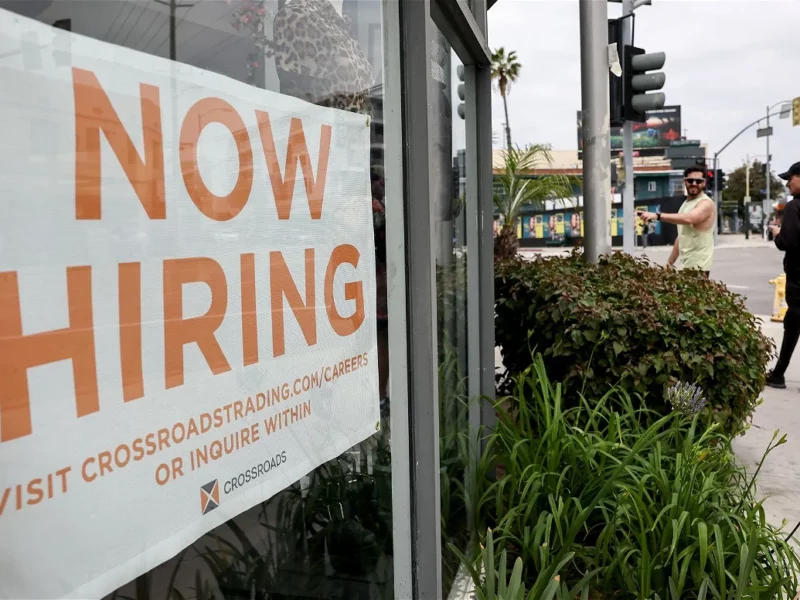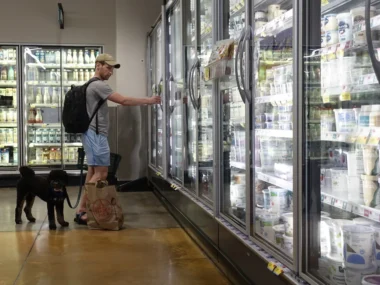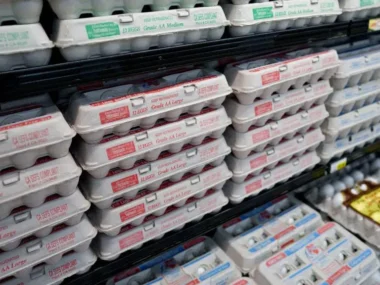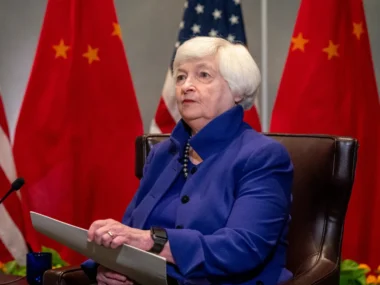Many Americans are feeling dissatisfied with the state of the US economy. One might assume that exceptionally positive news about the job market would uplift their spirits. However, this is not the case, and here’s the reason why: Inflation remains a significant concern, with prices continuing to increase at a rate faster than most people would prefer. While the annual price hikes are not as extreme as they were during the period when inflation surpassed 9% last year, they are still above 3%, which is considered detrimental to the economy by both the Federal Reserve and many economists. (The Federal Reserve maintains that a 2% inflation rate is ideal in the long run.)
Observing average gas prices at $3.75 (with many places exceeding $4), mortgage rates exceeding 7% and reaching a 23-year high, grocery store prices on the rise, and the resumption of student loan payments for millions of Americans, it becomes clear why a majority of Americans, according to a CNN Poll conducted by SSRS, believe that President Joe Biden’s policies have worsened economic conditions.
As prices continue their upward trajectory, salaries are struggling to keep up. They have only increased by 4.2% in the past year, marking the slowest rate of growth since the early days of the pandemic in 2020.
Therefore, even though the job market appears robust, it doesn’t necessarily make most people feel that the overall economy is strong. In fact, a strong job market might have an adverse effect on many Americans. Why is that? The Federal Reserve is actively working to slow down the economy by raising interest rates, which is the primary tool it has to combat inflation. With a job market that remains robust, as exemplified by the addition of 336,000 jobs last month, the central bank may feel more confident in continuing to raise interest rates without worrying about pushing the economy into a recession.
“The economy is surging, with the demand for workers at an unprecedented level,” noted Chris Rupkey, the chief economist at FwdBonds, in a recent communication to clients. He added, “Interest rates are expected to remain elevated for an extended period to ensure that the inflationary pressures subside.”
JPMorgan Chase CEO Jamie Dimon has also expressed concerns in recent weeks about the possibility of rates reaching 7%. As expectations of rising rates persist, government bond yields have climbed to multi-year highs, and loans tied to these yields, including mortgages and credit card rates, are poised to increase as well.
Average credit card rates have reached levels well above 20%, marking a two-decade high. Those who carry a balance from month to month are facing substantial interest costs, which means it will take them even longer to pay off their debts.
In the United States, mortgage rates have risen to 7.49% this week, up from 6.66% a year ago, representing the highest level in over two decades. This has kept the housing market relatively stagnant, making it difficult for many aspiring homebuyers to access the key path to middle-class wealth growth.
It’s important to emphasize that we should never celebrate a poor job market. However, a job market that has sustained this level of health for such an extended period isn’t necessarily great news for the average American grappling with financial challenges. Additionally, we find ourselves in a paradox where what would typically be considered good news is seen as bad news, leaving most people with the impression that the US economy is facing difficulties.











